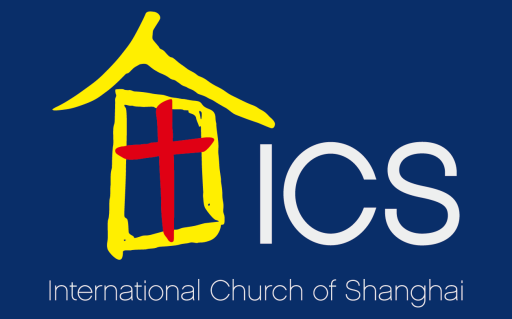Hebrews 7:1-3 (NKJV) For this Melchizedek, king of Salem, priest of the Most High God, who met Abraham returning from the slaughter of the kings and blessed him,to whom also Abraham gave a tenth part of all, first being translated “king of righteousness,” and then also king of Salem, meaning “king of peace,” without father, without mother, without genealogy, having neither beginning of days nor end of life, but made like the Son of God, remains a priest continually.
If we are aware of the truth that we are blessed by God, money shouldn’t be a sensitive topic. Discussions about giving often revolve around how to give, where to tithe, and how much to tithe. Some Christians even discuss whether tithing is an Old Testament practice that is irrelevant to New Testament believers. But if we are stewards of God’s money, and have experienced the goodness and faithfulness of God, we ought to ask ourselves what motivated us to ask all these questions.
The opening passage helps to shed light on whether tithing belongs to the Mosaic covenant and is thus obsolete today. When Abraham tithed to Melchizedek, it was some 400 years before the law of Moses. Therefore, tithing was already a practice long before the Mosaic covenant time. Thereafter, tithing was legally instituted in the law to provide for the Levites and the servants of God in the temple. However, tithing as a practice of worship, and as a specific command by God, didn’t come into its own until the law of Moses was given.
God intended to meet the needs of the Levites who were not given land like the rest of the tribes. Therefore they had to live on the tithe. However, the intent actually went beyond that and gave the people who tithed an opportunity to show their worship toward God and reliance on Him to live a consecrated life. Therefore, tithing had a dual purpose: practical and spiritual.
Hebrews 7:17 (NKJV) For He testifies:” You are a priest forever According to the order of Melchizedek.”
Melchizedek is not from the tribe of Levi, which shows that there are true priests who are not Levites. Melchizedek does not have any listing of birth or death nor does he have parents. He is not limited by life on earth. He reminds us of Jesus who is eternal without beginning or end, and the priesthood of Jesus is superior to the priesthood of men. Jesus is unlike any other priests and He does not belong to the line of Aaron as Priest. Jesus is eternal and His ministry will not end. He lives to intercede for us.
Jesus has offered His blood in the heavenly tabernacle and He is our High Priest, the King of Righteousness and Peace. Therefore, tithing is a financial principle that was established before the law was given, and tithing is an act of worship to God who has called us and blessed us.
Sermon Series: A Steady Walk of Faith with God
在奉献中敬拜
希伯来书 7:1-3 这麦基洗德就是撒冷王,又是至高神的祭司,本是长远为祭司的。他当亚伯拉罕杀败诸王回来的时候,就迎接他,给他祝福。 2 亚伯拉罕也将自己所得来的,取十分之一给他。他头一个名翻出来就是“仁义王”,他又名“撒冷王”,就是“平安王”的意思。 3 他无父、无母、无族谱,无生之始,无命之终,乃是与神的儿子相似。
如果我们意识到“我们是被神祝福的”这一事实,钱就不应该是一个敏感的话题。关于奉献的讨论总是围绕着如何奉献,什一奉献应该如何被使用,以及应该奉献是多少。有些基督徒甚至探讨什一奉献是否只是一个只存在于旧约时代的规矩,与新约信徒无关。但如果我们是神的金钱的管家,并且经历了神的良善和信实,我们就应该反思自己发出这些质疑背后的动机是什么。
开篇的经文有助于阐明什一奉献是否属于摩西盟约的一部分,以至现今已经过时了。亚伯拉罕向麦基洗德交纳什一奉献,之后过了400年才有了摩西盟约,因此,早在摩西盟约时代之前,什一奉献就已经是一种惯例了。此后,什一奉献被写进律法,以供养利未人和圣殿里神的仆人。然而,什一奉献作为一种敬拜方式,并且作为神的命令里一项具体内容,直到摩西律法颁布后才正式出现。
神特别在意并且祂愿意来满足利未人的需要,因他们没有像其他支派那样分到土地。因此,他什一奉献为利未人提供了生活来源。但什一奉献的设立目的远不止这一点,因为它给了奉献者一个机会向神表达敬拜,并且愿意依靠祂活出分别为圣的生命。因此,它有双重目的:一个是实用的,一个是属灵的。
希伯来书 7:17 因为有给他作见证的说:“你是照着麦基洗德的等次永远为祭司。”
麦基洗德并不是来自利未支派,这表明存在着非利未人的真祭司。无生之始、无命之终,也无父无母。他不受地球上生命的限制。他令我们想起耶稣,耶稣是永恒的,他也不在时间里被限制,耶稣的祭司职分远高于人的祭司职分。耶稣不像其他祭司,祂不属于亚伦血脉的祭司。耶稣是永恒的,祂的事工不会结束。祂活着就是为了为我们代祷。
耶稣在天上的帐幕里献上了祂的宝血,祂是我们的大祭司,是公义与和平之君。因此,什一奉献是在律法颁布之前就确立的财务原则,什一奉献是对那呼召我们和祝福我们的神的敬拜之举。
讲章系列:坚定信靠神
Image Source: pixabay.com
